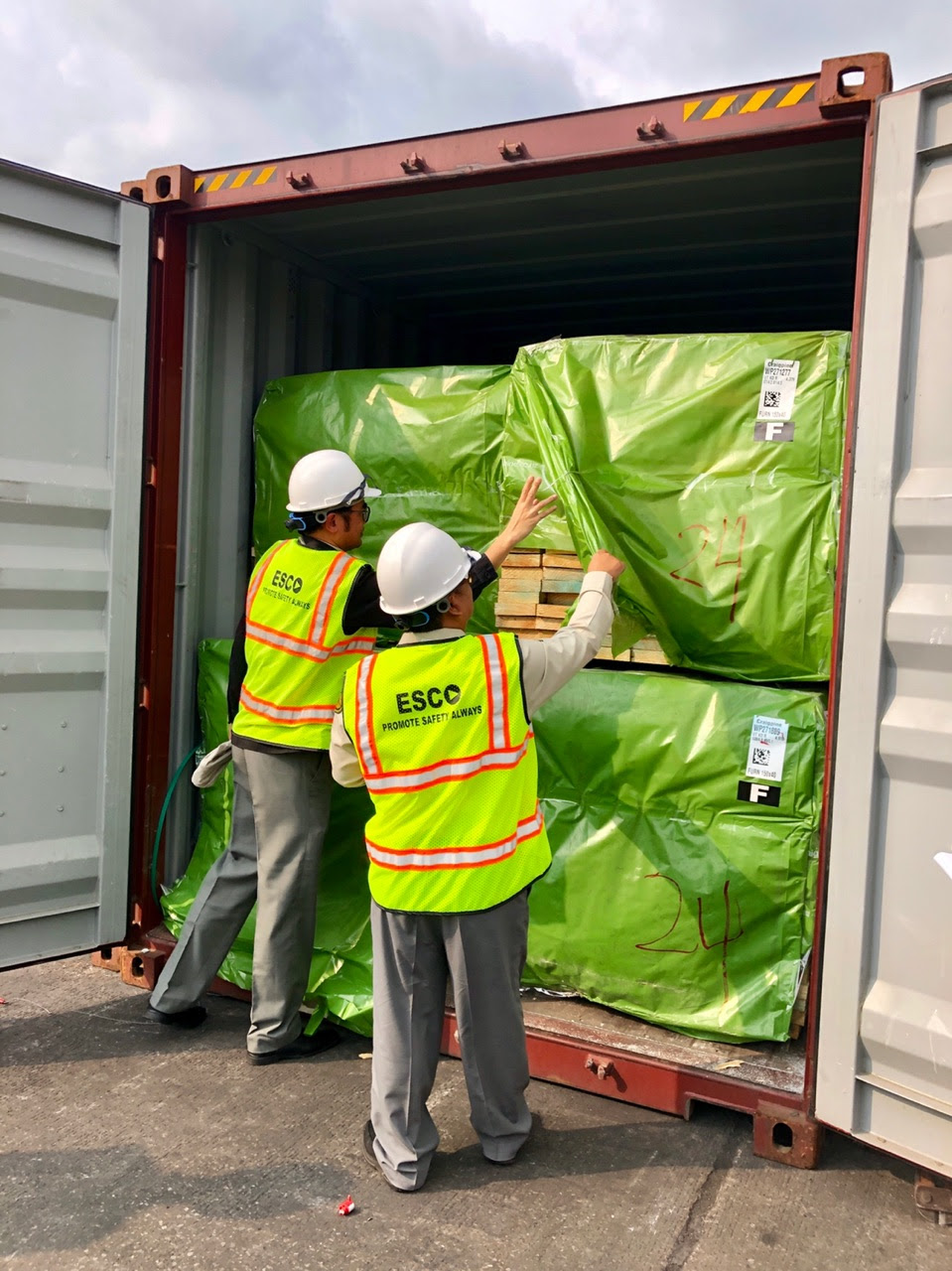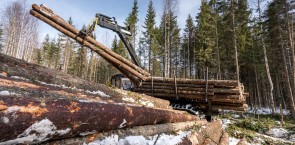
We have a new issue of the NEPCon Sourcing Hub Update for you! In issue 6 you can get updated on the latest news from around the world related to responsible sourcing.
Welcome to the first issue of the NEPCon Sourcing Hub Update for 2019.
This time of year is well known for making resolutions, thinking about the year that has just passed and what is coming in the year ahead. In NEPCon, we are excited about another year working toward or vision and mission of mainstreaming sustainability – and we hope with our expanding team in more than 45 countries, we will continue to do this with greater effect this year.
Interesting news out of Australia reached our inboxes in December. In November 2018, a Queensland-based importer was served with the first infringement notice issued under Australia's illegal logging laws. According to the Australian Government Department of Agriculture, the notice was issued for ongoing non-compliance with the laws' due diligence requirements and resulted in the business being penalised $12,600. This is an important step in the ongoing work to combat illegal logging globally, and we strongly commend the Australian Government for taking this important action.
I have just spent two days in Bangkok, participating in the second meeting of the Timber Regulation Enforcement Exchange Asia, an event co hosted by Forest Trends and the Thai Royal Forestry Department. NEPCon was invited to present on Certification and Due Diligence to government officials from across Asia. Following the meeting, participants visited O.K. Wood Product, a local furniture manufacturer, to better understand how Thai companies source wood and manage their documentation; the Lat Prabang Inland Container Depot to understand the role of the Thai Royal Forestry Department in the import of timber into Thailand; and finally the Eastern Sea Laemchabang Terminal to experience first hand the way that both the Royal Forestry Department and the Customs Department clear imports of timber into Thailand.

I hope you find this newsletter useful. As always, it was a busy month in the world of responsible sourcing, and we hope this is useful to your in your work.
Cheers,

Alexandra Banks
Sourcing Hub Programme Manager
Sourcing Hub Updates
Support the Sourcing Hub
 Would you like to support the NEPCon Sourcing Hub and keep the tool free and open source? Now you can, either through a donation, corporate sponsorship or funding a specific tool or risk assessment. We are working hard to ensure we keep the risk assessments and tools up to date, but we need your help! Check out the support options, or get in touch to discuss at [email protected].
Would you like to support the NEPCon Sourcing Hub and keep the tool free and open source? Now you can, either through a donation, corporate sponsorship or funding a specific tool or risk assessment. We are working hard to ensure we keep the risk assessments and tools up to date, but we need your help! Check out the support options, or get in touch to discuss at [email protected].
FSC Risk Assessments Approved
 FSC risk assessment has been approved for Russia, United Kingdom, and Uruguay and are now available on the FSC documentcentre. The Russia and Uruguay risk assessments contain several specified risks for various CW categories, while the UK risk assessment concludes low risk for all indicators.
FSC risk assessment has been approved for Russia, United Kingdom, and Uruguay and are now available on the FSC documentcentre. The Russia and Uruguay risk assessments contain several specified risks for various CW categories, while the UK risk assessment concludes low risk for all indicators.
Top News Stories
South Korea revises law on illegally sourced timber
South Korea’s has revised the the Act on the Sustainable Use of Timbers to tackle the trade of illegal timber – with the changes coming into effect on 1 October 2018. There will be a pilot implementation phase from 1 October 2018 until 30 September 2019.
This pilot phase will see requirements covering seven products, which are:
- Log
- Sawn timber
- Laminated wood
- Wood pellets
- Anti-decay wood
- Fire-retardant-treated wood
- Plywood
Under the new Act, it is mandatory for South Korean importers to file an import declaration to the Forestry Minister.
The import declaration must include documents verifying timber legality. The documents verifying timber legality may include one of the following:
- A permit for felling issued by the country of origin;
- Documents internationally recognised to certify legally felled timber (FSC, PEFC or ISO 12065);
- A document mutually recognised through bilateral consultation; or
- Any other document which verifies that the relevant timber has been legally felled, including FLEGT licenses.
The import declaration is inspected by an inspection agency prior to customs clearance. After confirmation from this inspection agency, Korea Forest Service will issue a certificate import declaration. Subsequently, Korea Customs will clear the products for entry into the country.
Importers must retain a document verifying a document verifying timber legality (for five years). Failure to verify the legality of imported timber will result in suspension of sales or destruction of imported products. Business producers who fail to keep documents will have their business suspended or timber production registration revoked.
COP24: Nearly 200 countries agree on global climate agreement
A total of 196 governments agreed on the Paris rulebook – a common framework – for implementing a landmark 2015 global deal to tackle climate change. The Paris rulebook defines how climate action is implemented, how countries should measure their greenhouse gas emissions, and hold each other accountable.
Negotiators from 196 countries at global UN Climate Conference (COP24) reached consensus on a detailed framework for the Paris Agreement that was struck three years ago, which aims at limiting a rise in the average world temperatures to below two degrees Celsius (3.6 degrees Fahrenheit) above pre-industrial levels.
During the two-week conference, various issues were discussed including finance and transparency of the agreement. The agreement will operationalise in 2020. The world’s top five carbon polluters, in descending order, are China, the United States, the European Union, India and Russia.
Although the United States is among the top carbon polluters, the US State Department has officially informed the United Nations in 2017 it intends to withdraw from the Paris Agreement, to cancel climate funding for poor nations.
Under the treaty, developed countries are required to provide funding to assist developing countries shift to clean energy, and to support defences against climate impacts. It also mandates climate aid of US$100 billion annually starting in 2020.
Although 196 nations unanimously agreed to new rules and effort to combat climate change, it seemingly did not address the global consensus that observers demanded to meet the urgency of the moment. The consensus to limit a rise in the average world-temperatures to below two degrees Celsius is not enough to forestall significant impacts of climate change.
According to a report commissioned by the Intergovernmental Panel on Climate Change (IPCC), released in October, it confirmed that half a degree can make a lot of difference. A half degree less reduces sea level rise, fewer species lost due to vanished habitats, drought and many more.
According to Rainforest Foundation Norway (RFN) policy adviser Torbjørn Gjefsen, there is a connection between forests as a huge natural resource and climate change.
Gjefsen, who spoke at COP24 said reducing carbon emissions will hinge to some degree on keeping forests. He stressed it is possible to reach the 1.5 degrees target by stopping deforestation and cutting fossil fuel emissions rapidly. Four commodities – beef, soy, palm oil, and wood products are the major causes for more than half of the world’s tropical deforestation.
NEPCon developed comprehensive risk assessments to these major commodities – beef, soy, timber, and palm oil in more than 70 countries. To learn more about these risk assessments, visit NEPCon Sourcing Hub.
EU seeks feedback for roadmap on deforestation
The European Commission has released a roadmap aimed at presenting an integrated EU approach to combat deforestation and reduce the EU’s footprint on the world’s forests.
The document has a list of possible actions that will be taken into consideration in the upcoming Communication, including promoting sustainable and transparent supply chains, and building effective partnerships with forested countries to support the uptake of sustainable agricultural and forestry practices.
The roadmap also proposes measures to address good governance of land rights, which is key to combat deforestation – through non-legislative measures. It also highlights the relation between deforestation and the global trade in commodities such as agricultural products – soy, palm oil and beef.
In the Commission’s own study titled, “The impact of EU consumption on deforestation”, it is estimated that EU consumes about one-third of all crops grown through forest clearing and more through forest degradation.
Deforestation is not only an EU problem as it is a major global problem – increasing the amount of greenhouse gases thus, accelerating the rate of climate change. According to Global Forest Watch, the world lost more than one football pitch of forest every second, or 29.4m ha, in 2017.
There are various drivers of deforestation, among the cause is an increased production of agricultural commodities such as palm oil, beef, soy, coffee and cocoa. This roadmap is now open for feedback until 15 January 2019. In the meantime, you can read more about risk assessments of the following major commodities - beef, soy, timber, and palm oil at NEPCon Sourcing Hub.
News from December 2018
![]() Timber
Timber
Africa
- Chatham House reports: How poverty is causing deforestation across Africa. Gitika Bhardwaj speaks to campaigner Obed Owusu-Addai about why solving the problem of deforestation across Africa requires tackling one of its biggest causes – poverty.
Brazil
- Mongabay reports: Tropical forest conservation in the Bolsonaro era (commentary). Brazil’s President-elect represents a major threat to Brazil’s legacy of forest conservation and to the prospects of preventing extremely dangerous climate change. This legacy was achieved largely through command-and-control measures that were supported by consistently pro-environment presidents over the last three decades; these measures are now vulnerable to the abrupt decline in environmental political will. A strategy to avoid major forest conservation setbacks and achieve new wins is possible under Bolsonaro if Brazil’s farmers and the broader society are convinced that they will be worse off if this legacy is dismantled.
- Mongabay reports: Top U.S. flooring retailer linked to Brazilian firm snagged in timber bust. An investigation by Brazil’s environmental enforcement agency and the federal police led to allegations that Indusparquet, a prominent supplier of tropical wood flooring, was using fraudulent permits to hide illegally harvested wood. Timberleaks, which first reported the link between Indusparquet and Floor & Decor, contends that the Lacey Act requires companies like Floor & Decor to go beyond the documentation provided by their suppliers — which in this case was alleged to be fraudulent — to ensure the source of those products is legal.
- The Hindu Business Line reports: In Brazil, a mission to reforest Amazonia takes root. To tackle global warming, the country hopes to restore 12 million hectares of trees by 2030. Businesses and social initiatives are taking up the challenge.
Cambodia
- Asian Correspondent reports: Cambodia mulls tougher laws on illegal timber logging.CAMBODIA loses thousands of cubic meters of timber through illegal activities and now the government is looking to amend its laws to better protect the prized natural resource. Last week, the country’s Minister of Interior held a meeting with counterparts from the environment and agriculture ministers, and other main stakeholders to reevaluate the existing laws which were deemed ineffective in combating illegal logging.
Ghana
- Ghana Business News reports: Government initiates two approaches to combat illegal logging. The Government has instituted two approaches as part of efforts to combat the increasing spate of illegal logging, mining, farming and other illegal activities in forest reserves and wildlife protected areas.
- Ghana Web reports: 98,500 lumber seized; 181 suspects grabbed. A total of 181 suspects have been arrested in connection with illegal chainsaw operations and 98,566 pieces of assorted lumber seized by a task force in the past six months, Minister of Lands and Natural Resources, Kwaku Asomah-Cheremeh, has revealed.
- Modern Ghana reports: Civic response deepens forest governance through real-time monitoring. Civic Response has deepen its further approach towards the promotion of forest sector governance through the implementation of its Civil Society-led Independent Forest Monitoring in Ghana (CSIFM-Ghana) project.
India
- Hindustan Times reports: India eyes farm forestry to reduce carbon footprint. India plans to partner with the private sector in scaling up its agro-forestry efforts. This is, however, a controversial subject because environmental activists are against India allowing any private or corporate forestry projects on forest land.
Indonesia
- TimberBiz reports: Indonesia marks major milestone against illegal logging. Indonesia and the EU have marked the second anniversary of a major milestone in their partnership against illegal logging — the launch of the world’s first ‘FLEGT’ licensing scheme, guaranteeing the legality of timber products exported to the EU. Since Indonesia began issuing FLEGT licences, on 15 November 2016, it has exported only verified legal timber and timber products.
Japan
- Ensia reports: Learning from the past: Japan’s tree-planting efforts provide lessons for other countries. As momentum grows around the world for reforestation, due in part to the need to sequester carbon, Japan’s experience can inform countries like China, Pakistan and India.
Malaysia
- The Star reports: Ikea completes replanting of three million rainforest trees in Luasong. Swedish furniture retailer Ikea has completed the replanting of three million rainforest trees at Luasong in east coast Sabah as part of its efforts to rehabilitate the degraded forest since 1998.
Peru
- Mongabay reports: Peru’s Brazil nut harvesters learn to monitor forests with drones. Brazil nut and ecotourism concessions in the Amazon maintain intact rainforest, but deforestation by illegal loggers, miners, and agriculturalists threaten the integrity of these lands and the Brazil nut industry. The Peruvian NGO Conservación Amazónica – ACCA is training concessionaires and forestry officials in southeastern Peru to fly drones and monitor the properties they manage using drone-based cameras.
- CIFOR reports: Recognition of indigenous territories as a REDD+ strategy: An example from the Peruvian Amazon. How tenure security can help achieve REDD+ objectives. A recent Rights and Resources report provides strong evidence on the importance of recognizing and protecting indigenous rights towards mitigating forest-based emissions and curbing global warming.
Romania
- Romania-Insider reports: Romanian forestry company reacts to BBC feature on ‘disappearing forest’. The state-owned company Romsilva, which manages part of Romania’s forests, has reacted to a recent BBC feature on the Cerna Valley National Park in Romania. Romsilva has said that statements in the feature, such as “the whole park seems to be a logging area”, “illegal lodging” and “illegal methods” do not reflect reality.
Vietnam
- Mongabay reports: Tracing the safeguards against illegal logging in Vietnam. The groundwork for obtaining and verifying legally-sourcedtimber in Vietnam is being laid with a new agreement between Vietnam and the EU. The agreement comes at a time when the timber industry in Vietnam remains blighted by cases of corruption, theft and illegal logging. An estimated 30,000 to 50,000 forest violations are reported every year in the Southeast Asian country.
![]() Palm oil
Palm oil
Indonesia
- The Jakarta Post reports: Indonesia plans to make 30 percent biodiesel blend mandatory, studies B100. While the government expanded the mandatory use of a 20 percent biodiesel blend (B20) in September, it plans to further boost domestic biodiesel consumption to absorb more crude palm oil (CPO) amid fluctuation in the global market price of the commodity.
- IndoPremier reports: Premier Insight : Government of Indonesia is seriously implementing regulations and actions to improve domestic consumption of palm oil. State owned oil company, Pertamina will develop three refineries for bio-diesel processing while state owned electricity company, PLN and Ministry of Energy and Mineral Resources (ESDM) are developing pilot project of 100% palm-oil-fueled power generation which expected to complete this year. Minister of Energy and Mineral Resource, Ignasius Jonan expects diesel power generations with capacity of 2GW to use palm oil fuel within the next two years.
- Mongabay reports: Vast palm oil project in Papua must be investigated by government, watchdogs say. Last week, Mongabay, Tempo, Malaysiakini and Earthsight’s The Gecko Project published an investigation into the story behind the Tanah Merah project, an enormous palm oil development in Papua, Indonesia, whose owners remain shrouded in secrecy. Observers say what while Papuans have a right to development, the Tanah Merah project is clearly intended to benefit the wealthy and connected individuals who have coalesced around it. Watchdog groups want Indonesian President Joko Widodo’s administration to investigate the permits underpinning the project with an eye toward cancelling them. They have also called on authorities to implement a new regulation requiring companies to disclose their beneficial owners.
- Unearthed reports: Indonesia and Malaysia tried to push UK government to take action over Iceland’s palm oil ban. Indonesian and Malaysian officials tried to push the UK government to lean on the supermarket Iceland after it announced it would cut palm oil from its own-brand products earlier this year. The retailer made the move on 10 April, citing concerns about rainforest destruction and environmental damage.
- Eco-Business reports: Women in palm oil: invisible no more?. Mounting attention on women’s rights violations in the palm oil industry have pushed women workers out of the shadows, forcing companies to step up and improve the welfare of their female workforce. In Indonesia, where close to 6 million people work in the palm oil industry, women toil alongside men in remote plantations across the country. However, female plantation workers are unlikely to be included in that number, as investigations on labour issues in the palm oil industry suggest.
- The Jakarta Post reports: ‘We’re only fighting fires of past sinners’: Luhut defends government's palm oil support. Coordinating Maritime Affairs and Fisheries Minister Luhut Binsar Pandjaitan has rebuffed claims that he and the government were not paying attention to the deforestation and forest fires caused by oil palm plantations. He said he was also worried about their environmental impacts on younger generations, but he claimed the government was struggling to make progress since the land concessions for the plantations, some of which were on fire-prone peatlands, had been given out by past governments.
Malaysia
- The Sun Daily reports: Government can play greater role in palm smallholders’ certification: RSPO. The government can play a greater role in the certification of small-time palm oil growers, especially breaking down barriers to entry and on land matters, according to the Roundtable on Sustainable Palm Oil (RSPO).
- Borneo Bulletin reports: Sarawak halts oil palm plantation expansion. The Sarawak government will not issue any new licences for the expansion of oil palm plantations, in line with its commitment to halt their enlargement, said Primary Industries Minister Teresa Kok.
- Daily Express reports: Why only 623 smallholders RSPO-certified in Sabah. Sabah is a very important palm oil producing State in Malaysia. It is one of the largest palm oil producers in the whole of Malaysia with thousands of smallholders in the State alone. However, there are only a total of 623 smallholders in Sabah who have achieved the Roundtable on Sustainable Palm Oil (RSPO) certification to date.
- Unearthed reports: Indonesia and Malaysia tried to push UK government to take action over Iceland’s palm oil ban. Indonesian and Malaysian officials tried to push the UK government to lean on the supermarket Iceland after it announced it would cut palm oil from its own-brand products earlier this year. The retailer made the move on 10 April, citing concerns about rainforest destruction and environmental damage.
- The Malaysian Reserve reports: FGV freezes recruitment due to RSPO findings. FGV Holdings Bhd has frozen all new recruitment of workers from external contractors across its operations with immediate effect, following complaints of labour policy breaches raised by the Roundtable on Sustainable Palm Oil (RSPO).
- The Sun Daily reports: Government can play greater role in palm smallholders’ certification: RSPO. The government can play a greater role in the certification of small-time palm oil growers, especially breaking down barriers to entry and on land matters, according to the Roundtable on Sustainable Palm Oil (RSPO).
Zambia
- Zambia Daily Mail reports: From mere workers to palm farmers. A wind of change is blowing over Senior Chief Kopa’s chiefdom. The area, one of the most under-developed rural parts of Zambia and Muchinga Province, in particular, is in the middle of a drastic transformation. It is host to Zampalm oil palm tree plantation that has created employment for close to 700 villagers since its establishment in 2008.
![]() Soy
Soy
Brazil
- Food Navigator reports: Dialogue on deforestation: Constructive meeting of EU and Brazil soy chain partners. EU and Brazilian partners came together late last month to assess progress on their common agenda on moving soy production and trade up a gear, in terms of sustainability.
![]() Beef
Beef
Honduras
- Mongabay reports: ‘There are no laws’: Cattle, drugs, corruption destroying Honduras UNESCO site. Poverty and political violence are driving Hondurans into Rio Platano Biosphere Reserve, a UNESCO World Cultural and Natural Heritage site holding some of the region’s largest tracts of old growth rainforest. Local conservation and agroforestry organizations say the settlers are contributing to deforestation in the reserve. However, research indicates illegal ranching is the biggest deforestation driver in the area. Locals say many illegal cattle ranchers maintain ties to the drug business. They claim government corruption and apathy are also contributing to the situation.
We hope you enjoy reading this newsletter. Sign up here for the next update and get it delivered to your inbox.






